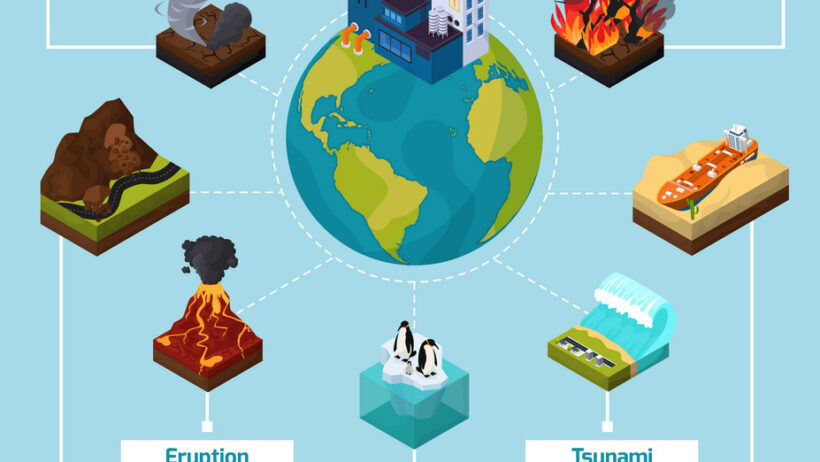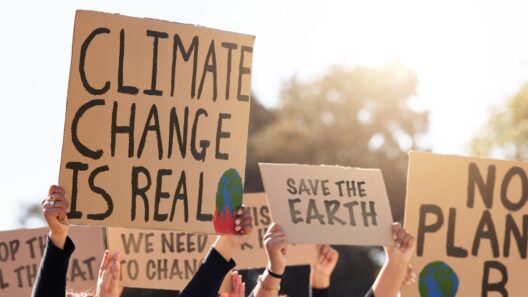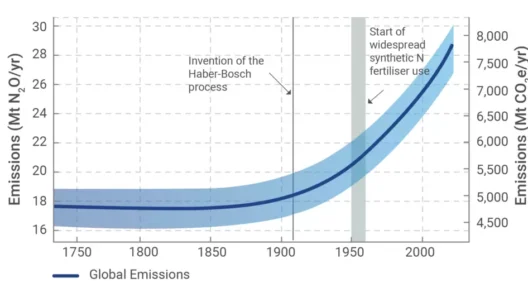Climate change and global warming are not distant, abstract issues that only affect polar bears or melting glaciers. They infiltrate our daily lives, manifesting through varied and profound alterations in our environment, economy, and health. Understanding the intricate ways these changes affect you is crucial for developing effective mitigation strategies and fostering a sustainable future. This exploration seeks to illuminate the numerous dimensions of climate change and its palpable impact on individual lives.
At its core, climate change refers to the long-term shifts in temperature and weather patterns, primarily driven by human activities, notably the combustion of fossil fuels. The emission of greenhouse gases such as carbon dioxide and methane traps heat in the atmosphere, leading to an escalation of global temperatures. This phenomenon impacts myriad aspects of life, ranging from weather extremes to economic disparities and health vulnerabilities.
One of the most visible impacts of climate change is the increase in extreme weather events. Hurricanes, floods, droughts, and heatwaves are becoming more frequent and intense, putting lives at risk and causing significant damage to infrastructure. For individuals living in vulnerable regions, the threat of displacement due to natural disasters looms large. Families may find their homes destroyed, and communities may struggle to recover financially. Individuals must contend with emotional trauma, loss of livelihood, and the potential need to relocate.
Beyond direct weather impacts, climate change also engenders longer-term patterns in ecosystems. The alteration of local climates leads to shifts in flora and fauna distributions. Farmers may find the crops they traditionally cultivated are no longer viable due to changing precipitation patterns or shifting temperature gradients. The increased unpredictability of harvests can result in economic insecurity, leaving farmers susceptible to market fluctuations and food scarcity. Moreover, rising sea levels threaten coastal agricultural lands, further exacerbating food production challenges.
Health concerns equally warrant attention amid climate change discussions. The World Health Organization warns of the rising health risks associated with climate fluctuations. Increased temperatures may enhance the proliferation of vector-borne diseases such as malaria and dengue fever, which thrive in warmer climates. Respiratory issues may be exacerbated by worsening air quality due to increased pollen and pollutant concentrations. Vulnerable populations, including the elderly and those with pre-existing health conditions, face heightened risks as summer heatwaves become more severe. The intertwining of climate resilience and public health is becoming increasingly evident.
The economic ramifications of climate change cannot be overstated. As natural disasters escalate, insurance costs rise, leading to increased premiums for homeowners and businesses alike. Additionally, climate change-induced migration can create a strain on infrastructure and social services in receiving regions, complicating local economies. Areas heavily dependent on industries affected by climate change, such as agriculture or tourism, may experience job losses or declining revenues. Conversely, industries embracing sustainable practices may find new opportunities, presenting a dual-edged sword in the economic arena.
Societal structures are also impacted by climate change, potentially exacerbating social inequalities. Low-income communities often possess fewer resources to adapt to changes, whether through relocation options or financial support during recovery. Disparities in access to affordable housing, healthcare, and transportation can widen as the consequences of climate change unfold. Policymakers must prioritize equitable solutions that address the needs of vulnerable populations while fostering community resilience against climate-induced challenges.
Another often-overlooked aspect of the climate change discussion is the psychological impact it has on individuals. The phenomenon known as “eco-anxiety” has gained recognition as more people become acutely aware of climate-related issues. Concerns about the future of the planet can lead to feelings of helplessness, despair, and anxiety, particularly among younger generations who bear the brunt of future implications. Mental health support and community engagement can play essential roles in fostering resilience against such overwhelming feelings.
Ultimately, combating climate change demands action on both individual and systemic levels. You, too, can play a pivotal role in the unfolding narrative of climate change. Simple actions such as reducing energy consumption, supporting sustainable products, and advocating for policies that prioritize environmental health contribute to collective change. Engaging in community-based initiatives or supporting local environmental organizations amplifies your voice within the broader dialogue on climate mitigation.
Education remains a cornerstone in the fight against climate change. A well-informed populace is better equipped to understand the complexities surrounding the issue and advocate for effective solutions. Schools, workplaces, and community centers should prioritize climate literacy programs, fostering an environment where dialogue and action flourish.
In summary, the effects of climate change are woven into the fabric of daily existence. From extreme weather events to health implications and economic disparities, the impact is far-reaching and undeniable. It is imperative to recognize that these changes are not merely statistics but manifest in tangible ways that influence individual lives and communities. By understanding these impacts, we can enhance our collective resilience, advocate for equitable policies, and strive towards a sustainable future that prioritizes the health of our planet and its inhabitants. Together, individual actions can forge a path toward a thriving world, countering the persistent threat of climate change.








